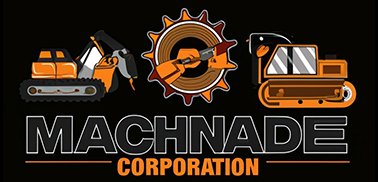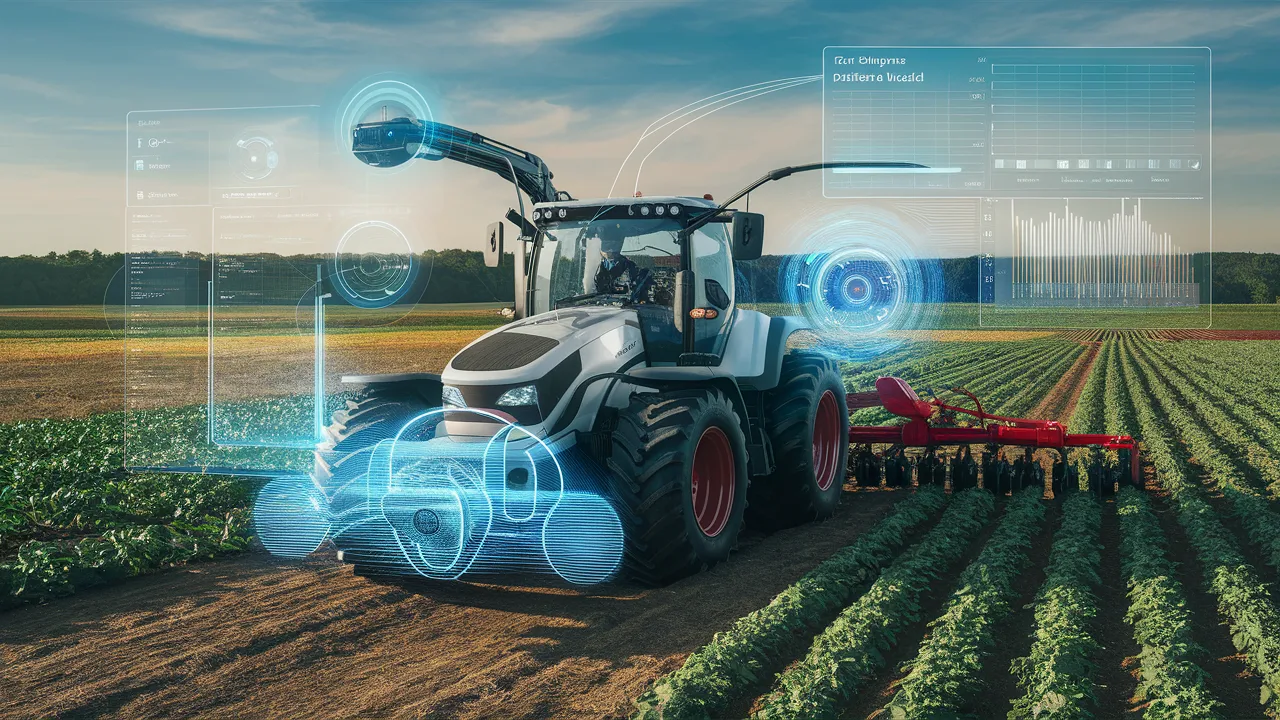In an era where agricultural efficiency is paramount, the fusion of Artificial Intelligence (AI) with tractor operations stands as a pioneering force transforming traditional farming practices. The dawn of AI integration into tractor activities heralds a new age of informed decision-making, where data becomes not just information but actionable intelligence.
Imagine a realm where each tractor roll across the field refines its actions based on real-time analytics, optimizing crop management and resource allocation with unparalleled precision. This transformation isn’t merely futuristic; it’s the present reality reshaping how farmers, agricultural engineers, AI developers, and agronomy researchers approach agricultural tasks.
For these dedicated professionals – farmers seeking increased yields, engineers striving for optimal machinery performance, developers sculpting AI algorithms for practical deployment, and researchers unraveling agriculture’s complex tapestry – integrating AI within tractor operations offers a convergence point.
It is a meeting ground where cutting-edge technology intertwines with age-old cultivation techniques to elevate agricultural outcomes exponentially.
Delving deeper reveals that AI empowers tractors to not only execute tasks per commands but also learn from environmental cues, predict maintenance needs before they halt operations, and promote sustainable practices through targeted interventions guided by data-driven insights.
In this ecosystem of innovation and collaboration, stakeholders discover a shared vision: leveraging advanced technologies to cultivate smarter farms that resonate with the demands of modern agriculture.
Understanding Artificial Intelligence in Tractor Operations.
Artificial intelligence, commonly referred to as AI, is the application of advanced algorithms that enable machines to simulate human cognitive functions such as learning and problem-solving. In the context of agriculture, AI plays a pivotal role in revolutionizing tractor operations by processing vast amounts of data collected from sensors, satellites, and other sources.
By using machine learning algorithms and predictive analytics, AI can analyze this data to provide valuable insights that help farmers make more informed decisions regarding crop management, soil health, and equipment usage on their farms.
This data-driven approach allows for precision agriculture practices to be implemented efficiently, leading to increased productivity and sustainability in farming operations.
One significant advantage of leveraging AI in tractor operations is its capability to optimize resource allocation based on real-time information. For instance, AI-powered systems can interpret satellite imagery to assess crop health across fields and recommend targeted interventions like precise nutrient applications or pest control measures only where needed.
This targeted approach not only minimizes input costs but also reduces environmental impacts by minimizing unnecessary chemical usage. Additionally, by automating tasks such as seed planting depths or fertilizer dosages through AI algorithms, farmers can achieve more uniform crop growth and overall improved yield outcomes.
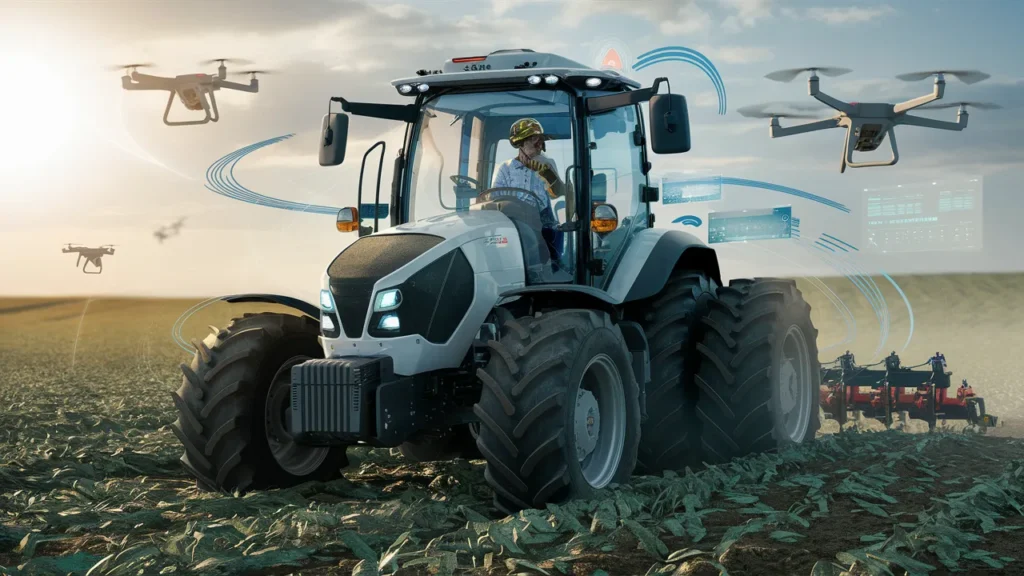
Precision agriculture practices benefit greatly from integrating artificial intelligence into tractor operations. These technologies enable farmers to transition from traditional blanket treatment methods towards variable rate applications tailored to specific field requirements.
By utilizing AI for decision-making processes related to irrigation scheduling, pesticide applications, or even harvest timings based on predictive modeling results, farmers can optimize their operational efficiency while minimizing waste and maximizing yields.
The strategic implementation of AI in tractor operations enhances the overall sustainability of agricultural practices by promoting data-driven decision-making that results in optimized resource management for both economic and environmental benefits.
Key Applications of AI in Tractor Operations.
In modern agriculture, the integration of Artificial Intelligence (AI) technologies into tractor operations has revolutionized traditional farming methods. One key application lies in automated field monitoring through the use of drones equipped with advanced AI technology.
These drones can capture high-resolution images of agricultural fields, and through AI algorithms, analyze plant health, detect pest infestations, and monitor crop growth stages. By providing real-time insights to farmers, they enable proactive decision-making based on accurate data rather than intuition.
Another critical application of AI in tractor operations is predictive maintenance scheduling. Using machine learning algorithms, tractors can now predict potential breakdowns or performance issues before they occur.
By analyzing historical equipment data and patterns, these AI systems can recommend maintenance schedules tailored to each machine’s usage. This proactive approach not only minimizes downtime but also extends the lifespan of farming equipment, ultimately optimizing operational efficiency and reducing repair costs for farmers.
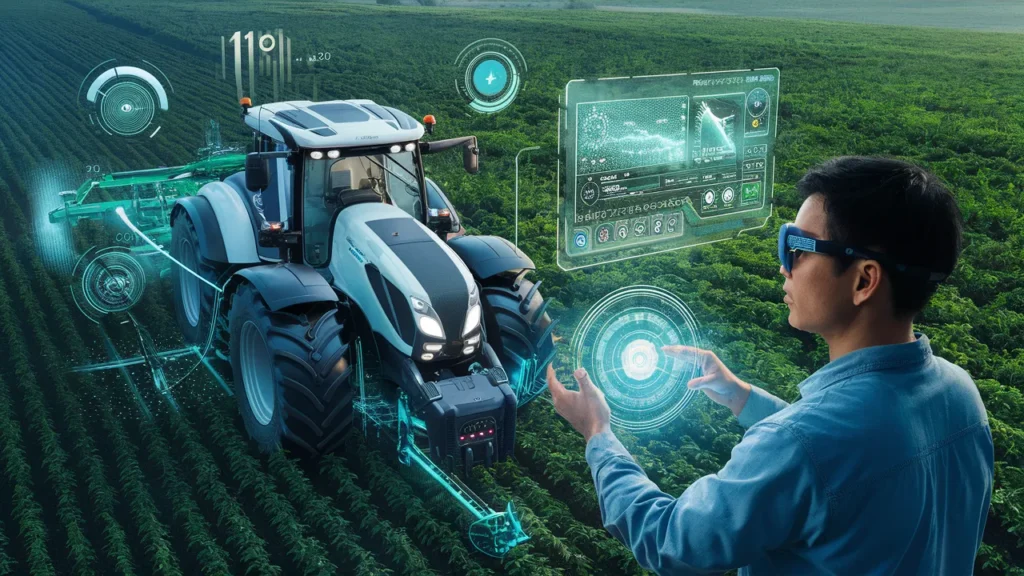
Moreover, AI plays a vital role in enhancing water management through smart irrigation systems. These systems adjust water usage based on real-time weather predictions generated by AI models.
By considering factors such as soil moisture levels, crop requirements, and upcoming weather conditions, the system can precisely regulate irrigation to avoid overwatering or underwatering crops.
This level of precision not only conserves water resources but also improves crop yields by ensuring plants receive optimal hydration according to their specific needs at any given time.
By harnessing the power of drone-based field monitoring, predictive maintenance scheduling, and smart irrigation systems driven by AI technologies in tractor operations, farmers can make informed decisions that optimize resources while increasing productivity on their farms.
These key applications showcase how AI is transforming traditional farming practices into efficient, data-driven processes that benefit both farmers and the environment alike.
Data Management and Analysis with AI.
In the realm of tractor operations, integrating Artificial Intelligence (AI) for data management and analysis is revolutionizing agricultural practices. By harnessing AI capabilities, farmers and agricultural engineers can gain invaluable insights into soil health indicators collected by sensors affixed to tractors.
These sensors utilize AI algorithms to analyze real-time data, providing instant feedback on crucial parameters like soil moisture levels, nutrient content, and pH balance. This immediate analysis empowers decision-makers to adjust irrigation techniques or apply fertilizers precisely where needed, optimizing crop growth and resource allocation.
Moreover, the integration of historical farming data with predictive analytics through AI tools offers a strategic advantage in enhancing crop yield and resource efficiency.
By leveraging past performance metrics, such as yield rates, weather patterns, and soil characteristics stored in databases connected to AI systems, farmers can make informed decisions on seed selection, planting schedules, and pest control strategies.
This proactive approach not only minimizes guesswork but also maximizes productivity by tailoring agricultural practices to specific field conditions based on data-driven insights derived from sophisticated AI algorithms.
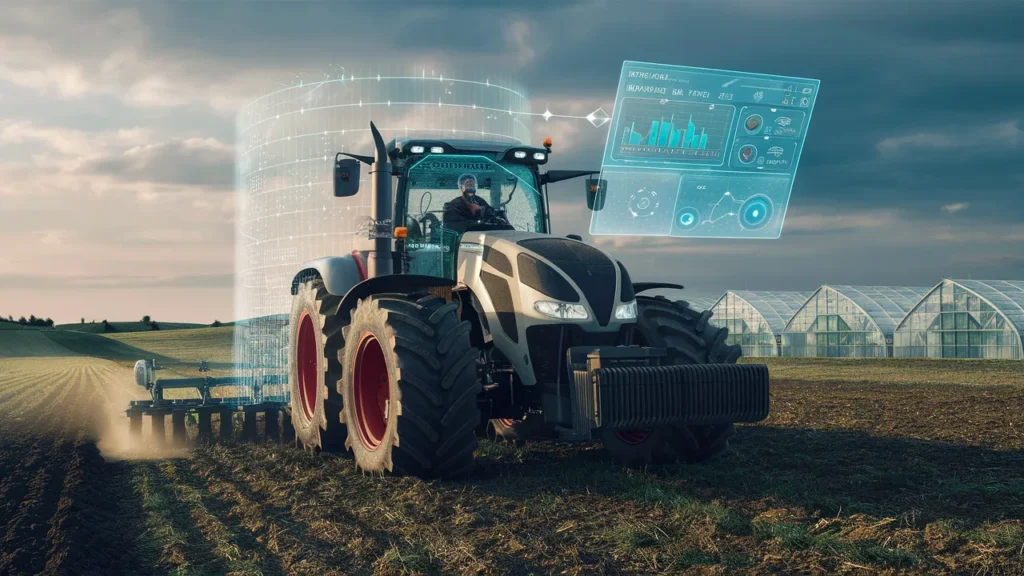
Furthermore, one of the significant benefits of employing AI in tractor operations is the utilization of cloud-based platforms for centralized data storage and accessibility. Cloud computing facilitates seamless collaboration between various devices used in tractor operations by providing a unified database accessible remotely.
This centralized approach ensures that all stakeholders involved—farmers, agronomists, and data scientists—can access real-time information concerning crop status, equipment diagnostics, or weather forecasts stored securely in the cloud.
Consequently, this streamlined data management system improves operational efficiency while fostering transparency and communication among different entities engaged in agricultural activities powered by AI technologies.
Enhancing Decision-Making through AI-driven Insights.
In the context of tractor operations, the integration of artificial intelligence (AI) offers a revolutionary approach to enhance decision-making processes. Through the utilization of AI algorithms, farmers can now receive customized recommendations for crop planting based on real-time soil quality assessments conducted by automated sensors seamlessly integrated with tractors.
By harnessing this technology, farmers can optimize crop yield by precisely tailoring their planting strategies to align with the specific conditions of each field. For instance, if sensors detect variations in soil moisture levels or nutrient content, AI systems can generate planting recommendations tailored to address these localized factors, thereby promoting efficient resource management and improving overall agricultural productivity.
Moreover, AI-powered computer vision technology presents an innovative solution for early detection of crop diseases within fields. By employing machine learning algorithms capable of analyzing visual data captured by sensors mounted on tractors as they traverse the land, farmers can swiftly identify signs of disease or pest infestation.
Once anomalies are detected, AI systems can promptly recommend targeted treatments or interventions, enabling farmers to mitigate potential crop losses effectively. This proactive approach not only safeguards crop health but also minimizes the need for indiscriminate pesticide use, aligning with sustainable agriculture practices aimed at reducing environmental impact while ensuring optimal harvest outcomes.
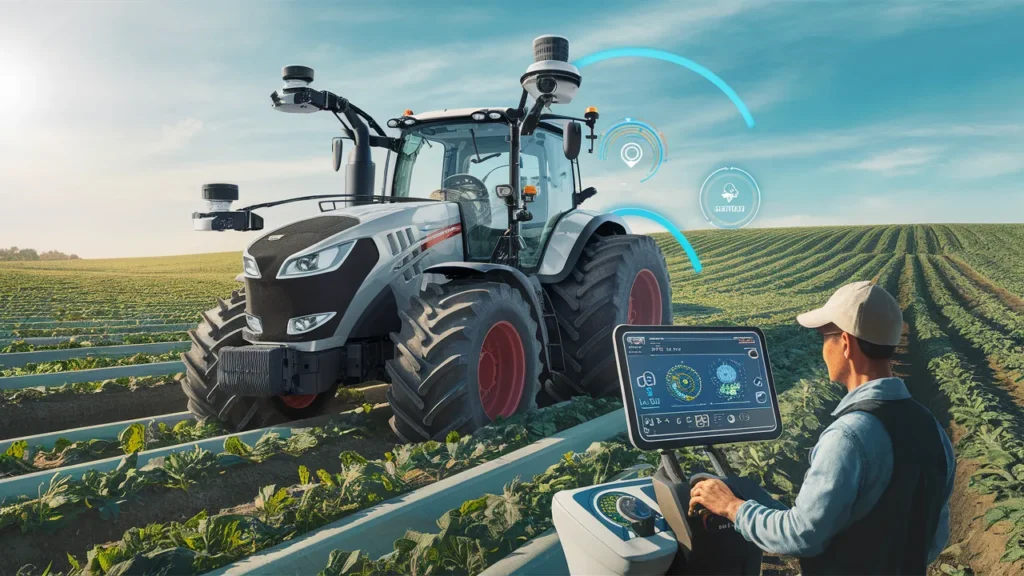
Furthermore, the seamless incorporation of weather forecasting models into tractor operation plans through AI integration enables adaptive decision-making strategies in response to changing weather conditions. By leveraging AI-generated weather predictions linked to GPS-enabled tractors, farmers gain valuable insights into upcoming climatic variations that could impact agricultural activities.
For instance, in anticipation of unfavorable weather events such as heavy rain or drought spells, AI systems can recommend adjusted planting schedules or irrigation strategies to mitigate potential damage and preserve crop yield.
This dynamic approach facilitated by AI-driven insights empowers farmers with actionable information to make timely decisions that optimize operational efficiency and resilience amid environmental uncertainties.
The integration of AI-driven insights into tractor operations represents a significant leap towards informed decision-making in agriculture.
With advancements in customized recommendations for crop planting based on soil assessments, early detection of crop diseases through computer vision technology, and adaptive planning aided by weather forecasting models powered by AI algorithms, farmers stand to benefit from enhanced efficiency and productivity across their farming practices.
As this technological evolution continues to unfold, harnessing the collective power of data analytics and intelligent automation holds immense potential for shaping a more sustainable and productive future for tractor operations in agriculture.
Addressing Implementation Challenges and Considerations.
In the realm of tractor operations, integrating AI involves substantial initial investments in both technology acquisition and implementation. AI-powered solutions such as sensors, drones, and data analytics tools require a financial commitment from farmers or farm managers.
For instance, the cost of outfitting tractors with smart sensors for real-time data collection can be significant but is crucial for optimizing decision-making processes. Additionally, subscribing to cloud-based platforms for centralized data storage and processing entails ongoing expenses that need to be factored into the operational budget.
Another critical aspect is providing adequate training to farmers and agricultural engineers to effectively utilize AI-driven tools in day-to-day tasks on the farm. Training programs should cover topics like understanding AI algorithms, interpreting data analytics reports, troubleshooting sensor malfunctions, and optimizing equipment performance based on AI recommendations.
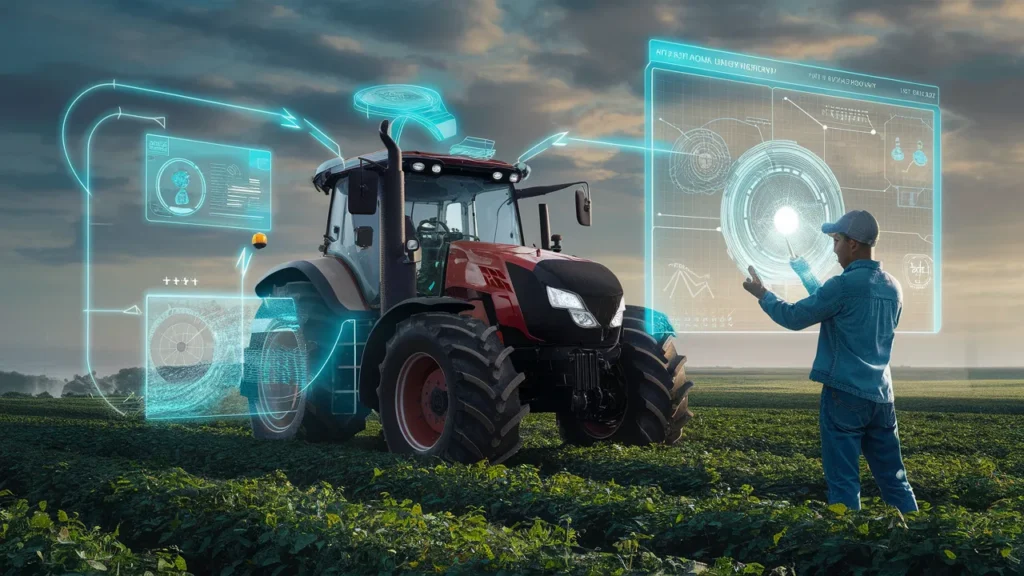
For example, workshops demonstrating how to calibrate drone-mounted cameras for field monitoring purposes can empower users to leverage aerial imagery for crop health assessments accurately.
Data security and privacy compliance are paramount considerations when sharing agricultural data processed through AI systems. Farmers must ensure that sensitive information related to crop yields, soil quality assessments, and operational strategies remains protected from cyber threats or unauthorized access.
Implementing encryption protocols for data transmission between tractors and cloud servers can safeguard against potential breaches of confidential farming insights. Moreover, adherence to regulatory frameworks governing data privacy in agriculture is essential to maintain trust among stakeholders involved in AI-integrated tractor operations.
Future Trends in Integrating AI with Tractor Operations.
The future of tractor operations lies in the integration of advanced Artificial Intelligence (AI) technologies, paving the way for autonomous tractors that can perform tasks with minimal human intervention. These autonomous machines, driven by AI algorithms, offer the potential to revolutionize farm operations by optimizing efficiency and resource utilization.
Moreover, collaborative platforms are expected to emerge, fostering connections between multiple farms through shared AI-driven insights and best practices. This interconnected network will enable farmers to collectively benefit from data-driven decision-making processes and sustainable agriculture initiatives.
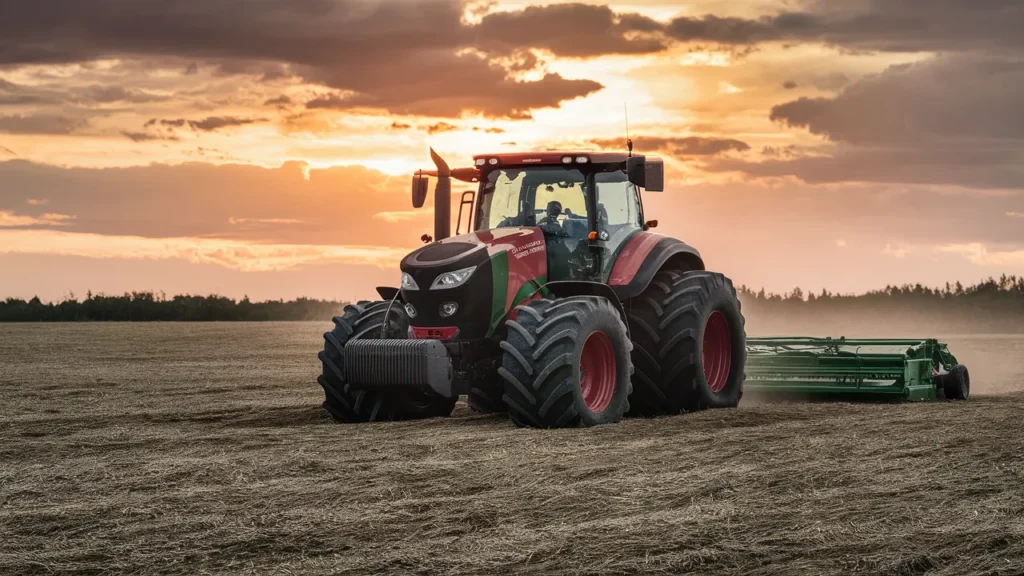
In conclusion, the integration of AI into tractor operations is rapidly transforming traditional farming practices by enabling informed decisions based on real-time data analysis and predictive capabilities.
As technology continues to advance, the future holds promising developments such as autonomous tractors and collaborative platforms that will further enhance operational efficiencies and sustainability in agriculture.
Embracing these trends and evolving with technological advancements will be key for stakeholders in the agricultural sector to harness the full potential of AI-driven solutions for optimized tractor operations and improved agricultural outcomes.



